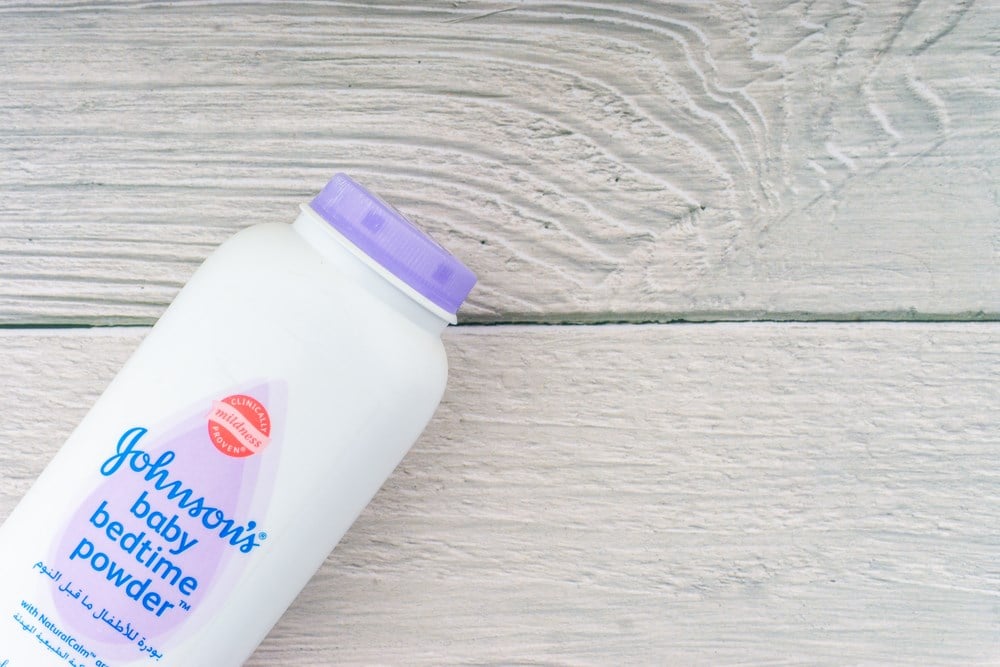
Shares of Johnson & Johnson (NYSE: JNJ) slid 4.84% lower the week ending October 27, as the company’s subsidiary LTL Management is facing a raft of lawsuits pertaining to talc in its baby powder.
Financially, a bankruptcy for that unit would make sense, so the company could avoid substantial payouts that could put a dent in earnings.
Strategically, it could also put trials on pause while the company negotiates with plaintiffs’ attorneys. There have already been two previous bankruptcy filings by the LTL Management unit, although those cases were dismissed.
Johnson & Johnson stock has been struggling, posting a three-month decline of 15.49% and a year-to-date decline of 15.59%. It’s the third most heavily weighted component among healthcare stocks in the Health Care Select Sector SPDR Fund (NYSEARCA: XLV), behind UnitedHealth Group Inc. (NYSE: UNH) and Eli Lilly Co. (NYSE: LLY).
At least 18 jury trials are in the works in the coming year, spurring J&J to mull bankruptcy as a way of encouraging a global settlement. Plaintiffs claim they developed ovarian cancer and mesothelioma as a result of using baby powder tainted with asbestos.
Billions in talc settlements
Since 2016, the company has paid out at least $2.5 billion in settlements related to these claims.
In July, a jury decided that the company would have to pay $18.8 million to a California man who contracted mesothelioma, a deadly cancer, as a result of long-time exposure to Johnson & Johnson talc.
At this point, with the lawsuits and potential awards piling up, Johnson & Johnson is aiming for a global settlement. Attorneys representing some o of the estimated 70,000 talc lawsuit plaintiffs would support a deal for $8.9 billion that J&J has proposed.
It’s a complex situation: LTL Management was spun off by Johnson & Johnson in 2021 as a vehicle to absorb the company’s talc liability. There have been lawsuits and counter-lawsuits, with J&J filing suit against scientific experts from a previous case.
The company says the cost of its talc-related verdicts, settlements and legal fees now total about $4.5 billion.
No longer selling talc baby powder
In response to lawsuits and bad publicity surrounding the products, Johnson & Johnson said in May 2020 it would stop selling talc-based baby powder in the U.S. and Canada. It now sells cornstarch-based products, but has claimed that "misinformation" surrounds the products’ safety.
Those products are now sold by Johnson & Johnson spinoff Kenvue Inc. (NYSE: KVUE). That company specializes in consumer products while Johnson & Johnson focuses on pharmaceuticals and medical devices.
Of course, conditions beyond just talc lawsuits are affecting Johnson & Johnson stock.
On October 17, the company reported quarterly results that beat views on the top and bottom lines, as you can see using MarketBeat’s Johnson & Johnson earnings data.
Boosted full-year guidance
The company also raised its full-year guidance, now expecting full-year revenue in a range between $83.6 billion to $84 billion, up from earlier guidance of $83.2 billion to $84 billion. J&J also expects adjusted earnings per share in a range from $10.07 to $10.13, up from earlier guidance of $10.00 to $10.10.
Strong growth in sales for multiple myeloma treatment Darzalex was a key driver in the quarter, along with prostate cancer treatment Erleada.
Stelara, the company’s blockbuster treatment for inflammatory diseases, was also a big grower. However, J&J loses patent protection on that product this year.
However, a decline in sales of prostate cancer drug Zytiga and blood cancer drug Imbruvica offset some of those gains. Imbruvica, which is co-marketed by AbbVie Inc. (NYSE: ABBV), is subject to Medicare price negotiations.
The steep decline in sales of J&J’s Covid vaccine also weighed on pharmaceutical revenue growth. The vaccine is no longer sold in the U.S., and international revenue is falling. In media interviews, company executives said its success is not dependent on that product.













